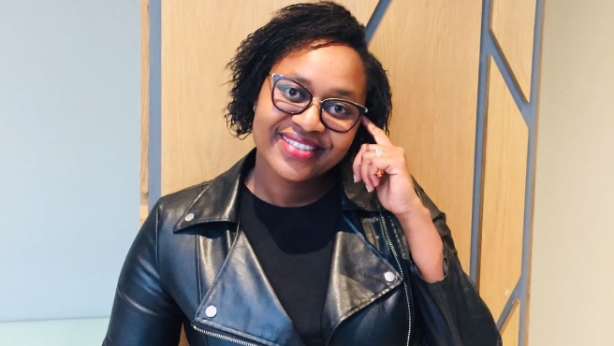What I’m Struggling With: A Decade of Pushing for Menstrual Justice
The 28th of May marks World Menstrual Hygiene Day, with the seemingly simple goal of “making menstruation a normal fact of life by 2030.”
However, after a decade of striving for a world where menstruation is treated as the normal, natural fact of life that it is for around half of the population—a world where all those who menstruate have access to the basic products needed to manage it; where no one feels irrational shame or embarrassment around this normal bodily function; and where all people, whether or not they menstruate, are educated around the topic to avoid misinformation and cultural taboo—I regret to say that we are still far from achieving this.
“It may seem like just a pad, but it represents so much more.”
Back in 2013, while I was working in the newsroom as an Anchor, Reporter, and Producer, my team at Citizen TV Kenya aired a story called Periods Of Shame. This feature showed girls in a remote area of Kenya using unsanitary and inefficient products such as chicken feathers, goat hide, and whatever else they had to hand, in an attempt to manage their periods.
As a result, they were missing out on school during their periods, getting infections, and even being exposed to risks such as teen pregnancy due to the social stigma and resulting lack of education around menstruation, fertility, and sex.
This story was the catalyst for what the next decade of my life would look like. It motivated me to want to be a part of ending what we would come to know as “Period Poverty,” as well as scaling access to the information and products required for safe, hygienic, and non-disruptive menstruation. I founded the Inua Dada (Kiswahili for “uplift a sister”) Initiative, which I later registered as the Inua Dada Foundation in 2014.
“It feels like an uphill struggle. But my beliefs, values, and the love I hold for my own children, inspire me each day…”
During these last few years, I have collaborated with media houses, NGOs, the Kenyan government, and others to mainstream conversations around periods and Sexual and Reproductive Health and Rights (SRHR), as well as other intersectional issues such as gender-based violence (GBV), and financial inclusion.
This was supplemented by continued advocacy efforts through myriad mediums and platforms to reach as many people as possible. The most notable example of this was publishing my first book, titled My First Time, compiling the stories of 50 individuals recounting their first menstrual experiences.
It really hit home while researching for and writing this book that the best way to combat the stigma that exists around menstruation is by sharing our stories.
The sharing of these stories and the voices who tell them allows room for empathy, connection, and learning from one another’s experiences. It normalises conversations, highlights gaps, and can even point to solutions. I later launched a podcast of the same name in 2022 to continue showcasing the very personal stories of some incredible individuals.
The Inua Dada Foundation has since established a centre where we hired women who were previously in financial hardship to produce sanitary pads to distribute to disadvantaged schools in various communities.
However, the gaps remain: stigma around menstrual health, a limited trickling down of information, lack of education around bodily rights and autonomy, and failure to provide basic necessities–whether that’s clean water and sanitation facilities, education, or menstrual products.
“I hold the firm belief that when everyone is included, everyone wins.”
I have been fighting for this basic right for women and girls for a decade now. At times, it feels like an uphill struggle. But my beliefs, values, and the love I hold for my own children all inspire me each day to want to be a part of creating a more accessible and equitable society for our future generations. I hold the firm belief that when everyone is included, everyone wins.
Over the next ten years of this journey, I hope to see SRHR and menstrual justice become a priority and integrated as a prime concern within the development agenda. There must be more resourcing to facilitate sustainable change in the menstrual justice space.
This will follow the normalisation of conversations around menstruation and all the other natural functions of our bodies. Finally, we must all have the agency–especially women and girls–to speak out on the key issues that affect us.
But to achieve this, there needs to be a more unified approach from different stakeholders and duty-bearers. Right now, the efforts are quite sporadic and disjointed. And while individual campaigns and initiatives have immense value, a more cohesive voice would allow us to collectively amplify advocacy around menstrual justice, maximising our impact.
It may seem like just a pad, but it represents so much more. Such a basic thing can mean comfort and hygiene, yes, but it can also mean the freedom to leave the house. It can mean access to education. It can mean the eradication of shame. It can mean hope for the future.

Janet Mbugua is the Founder of the Inua Dada Foundation, Kenyan media personality, anchor, and actress, and a former Women in Dev Steering Committee Member.
Insstagram: @officialjanetmbugua


